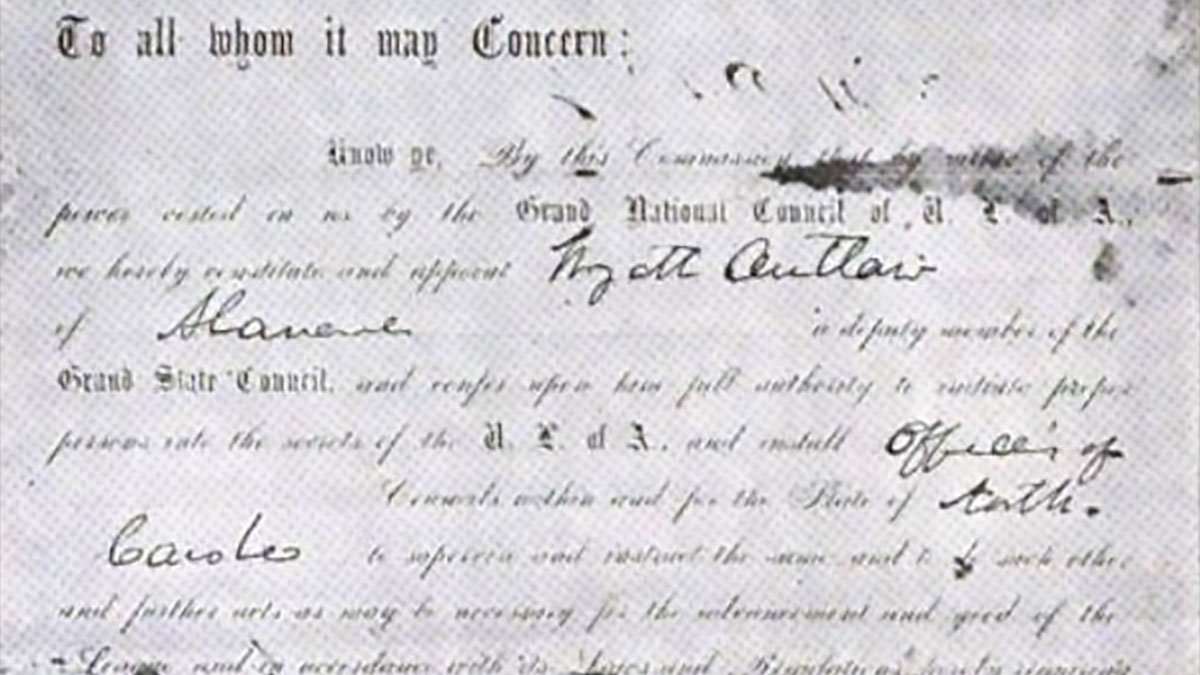
Feb. 26, 1870

Wyatt Outlaw, a Union veteran and the first Black town commissioner of Graham, North Carolina, was seized from his home and lynched by members of the Ku Klux Klan known as the White Brotherhood, which controlled the county.
Outlaw served as president of the Alamance County Union League of America, which opposed the White Brotherhood and had advocated establishing a school for Black students — something Klansmen had vowed to burn down.
When the Klan tried to terrorize the town’s Black citizens, Outlaw and two other Black constables opened fire on the hooded men. Sometime later, more than 60 hooded Klansmen invaded his home with torches, swords and pistols. They beat down Outlaw’s door with axes.
When his 73-year-old mother confronted them, they knocked her down and kicked and stomped her. As the mob dragged Outlaw away, his 6-year-old son screamed, “Oh, Daddy! Oh, Daddy!”
The Klansmen walked Outlaw bare-chested and barefoot to the Alamance County Courthouse, where they lynched him and placed a note on his chest: “Beware! Ye guilty parties — both white and black.”
Eighteen Klansmen were indicted for Outlaw’s murder, but charges were later dropped. Other Klan violence led to other deaths and injuries. Outlaw’s lynching, followed by the assassination of state Sen. John W. Stephens at the Caswell County Courthouse, prompted Gov. William Woods Holden to declare martial law in the area. As a result of his stand, the governor was impeached.
Decades later, in 1914, officials gathered to commemorate a new Confederate memorial. Jacob Long, a longtime lawmaker, praised “the achievements of the great and good of our own race and blood” just steps from where he and other Klansmen reportedly lynched Outlaw. The monument still stands.
There is no monument to honor Outlaw. A play telling his story debuted in nearby Burlington in 2016.

